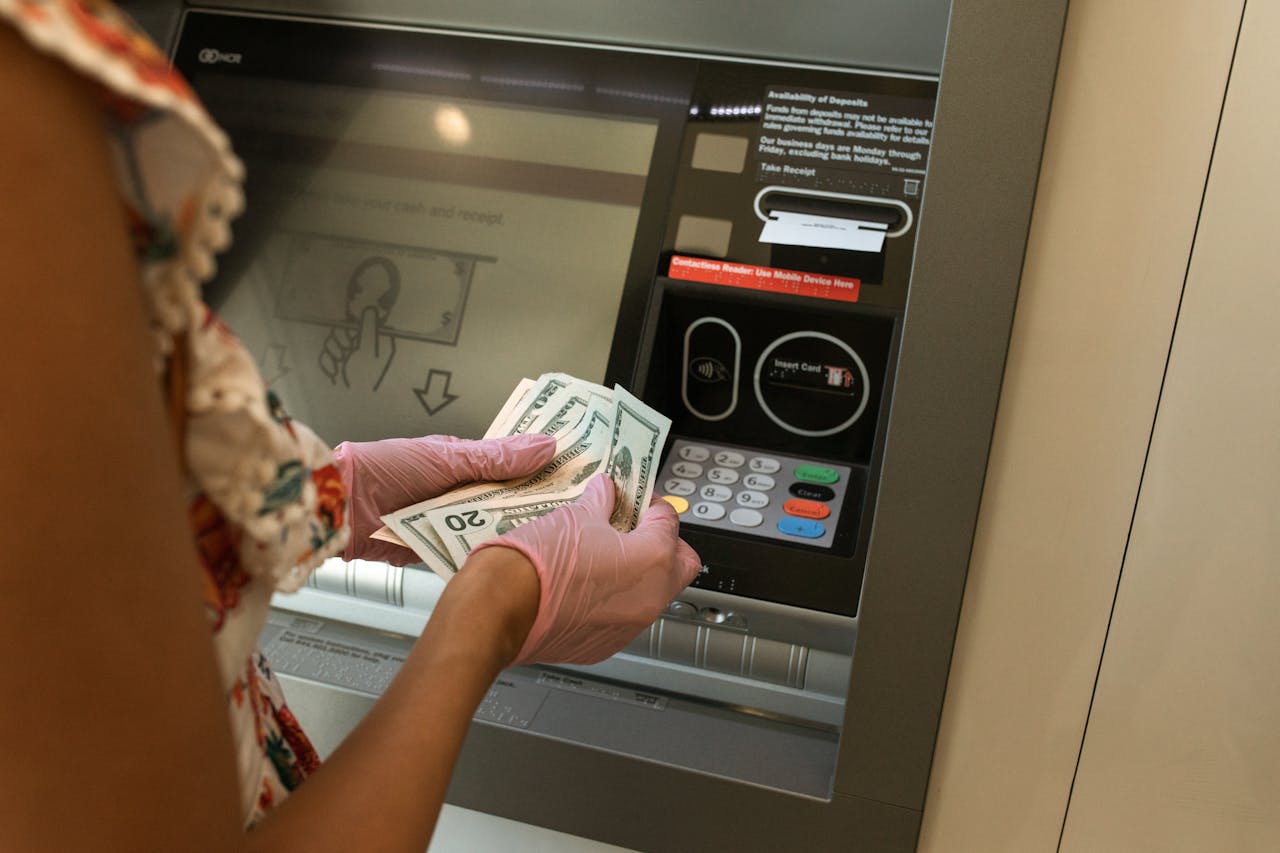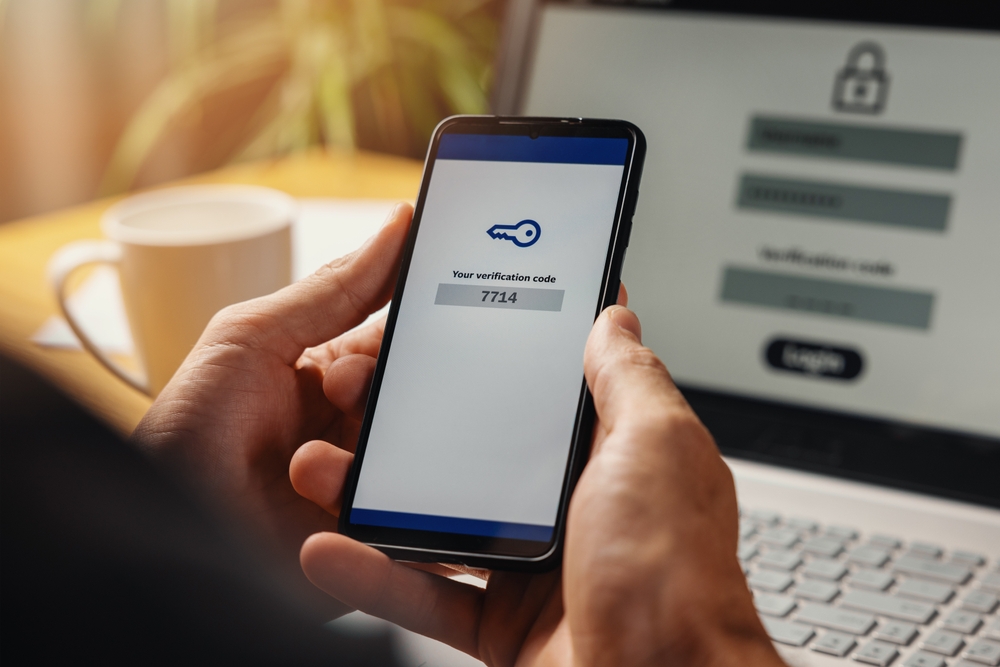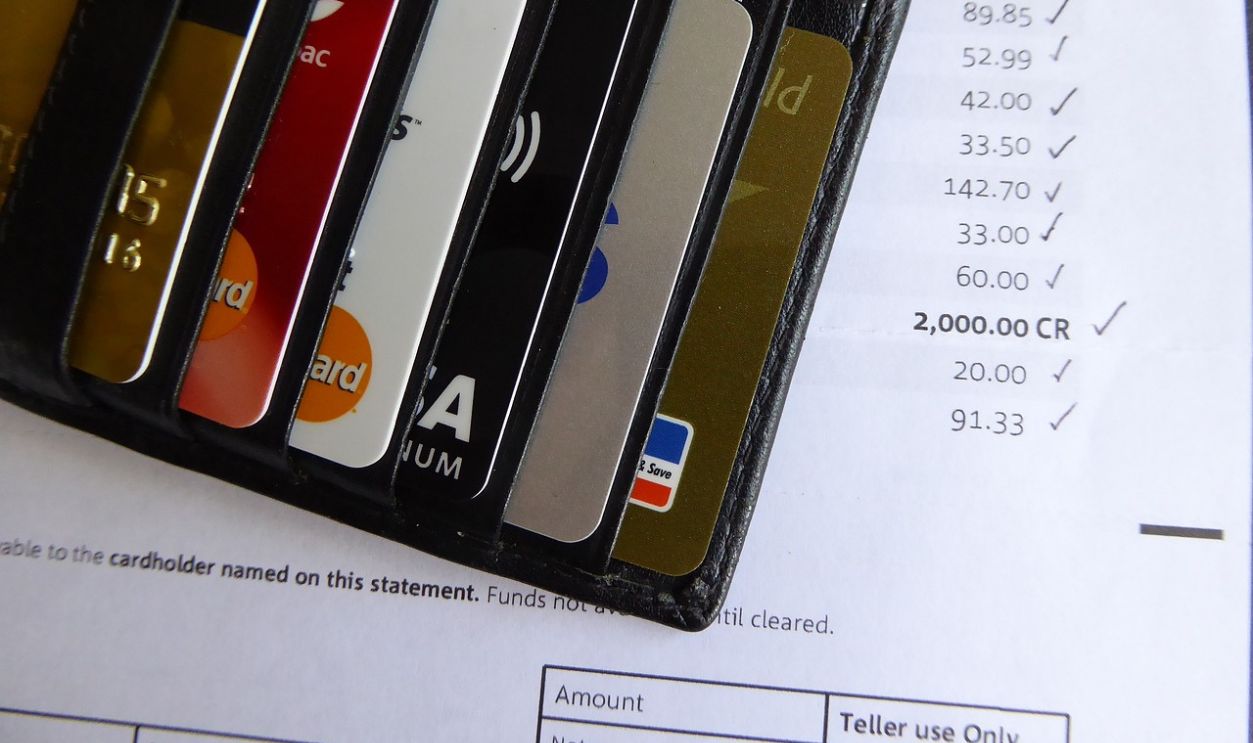What To Do If You Think Your Spouse May Be Hiding Money From You
Honesty is one of the most crucial aspects of any long-term partnership, particularly when combining finances with a significant other. Some may advise keeping your finances separate. While this is a good idea in general, it's almost always necessary to combine your finances with a common-law partner or spouse at some point, particularly when you buy a home. But what do you do if you think your spouse is being dishonest about finances?

Try Having A Conversation About It First
Conflict resolution begins with conversation. Try discussing your financial concerns with your significant other first, before proceeding with any surreptitious surveillance on your joint bank account. This could even be done casually: "Honey, I've noticed some money going out of our joint account. Did you pay for something recently?" You shouldn't be accusatory or unnecessarily confrontational.
What If They're Not Receptive?
Your significant other may shut down the conversation entirely or lie about their spending from your joint account. If you suspect they're not being honest, or they shut down the conversation early on without reaching a resolution, that's your first red flag that something untoward is going on.
Monitor Your Joint Account Closely For A Month
Unless you notice a huge movement of money, it may be beneficial to monitor your joint account for a month or so, just to rule out a more innocent explanation for money disappearing from the account unexpectedly. If you do notice a large sum of money being moved, contact your bank immediately.
How To Check Your Bank Account Activity
If you both have access to a joint bank account, then you can use your mobile app to login and see your account activity. You should already have some idea of what your normal monthly joint account activity is—for example, if your SO is taking money out to pay this or that bill. But, if you spot a pattern of transactions you don't recognize, this may be a bad sign.
Go Into Your Bank's Nearest Branch
If you don't use mobile banking, you can go into your bank's nearest branch and have a conversation with them about the unusual transactions. If you have any other joint accounts, you can check those too for unusual activity.
Gather Your Joint Financial Information
Before you accuse your significant other of something as monumental as taking money that's not theirs and spending it on things that weren't agreed upon, you'll need to have some serious proof. Print off your bank account statements from your joint account for the last six months, as well as statements from any joint investment portfolios you own.
Set A Different Transaction Limit
Your first step if you suspect financial irregularities might be to set a lower transaction limit on your joint account that's no higher than your maximum monthly expense that comes out of it. Anything above that maximum limit will be bounced back and then you and your SO can have a conversation about why they're moving money or spending money out of the joint account for a large purchase.
Engage The Services Of A Finance Professional
While your bank may suggest locking the account early on, it's important that you gather evidence of financial impropriety before you lock the account—especially if you need access to the money that's in there, too. Engage the services of a financial professional, like a forensic accountant.
What To Do With The Findings
If the hired forensic accountant, or your bank, are able to confirm the financial irregularities are coming from your significant other, as you suspect, then your first task is lock the account to prevent access. Then, transfer the existing funds to your personal bank account before confronting your significant other.
Confronting Your Partner About Financial Impropriety
Whether their financial impropriety was on a grand scale or not, or to finance a deeper problem, it's going to be hard to have a conversation with them about it. Come prepared with all of the financial information you need. Hard facts and numbers that are impossible to excuse away.
What To Do Moving Forward
Whether your marriage or relationship survives this kind of betrayal of trust is up to you and your significant other. But we understand that you're going to need to be more closely guarded about your finances moving forward, regardless of whether you stay with the person or not. Here's how to manage your accounts more closely moving forward.
Set Up Alerts On Your Phone Or Through Your Branch For Unusual Activity
You can set up an alert on your phone's banking app that monitors and detects unusual activity. This is something you could discuss with your bank if you go into the branch. You could also receive this notification via text message or email.
 Alex from the Rock, Adobe Stock
Alex from the Rock, Adobe Stock
Avoid Unnecessary Fees
If part of your financial infidelity included your significant other amassing subscription expenses, conducting an audit of which fees are coming out of your account and see if there are any unnecessary expenses that you can cut out.
Automate Your Bill Payments
If part of the infidelity included bill payments not being made in favor of other unnecessary expenditures, it's time to automate those bill payments. That way, there's no chance of you missing a payment because your significant other decided to pay for something else without telling you.
Utilize Direct Deposits
If you each put money into a joint account every month, take the time to set up direct deposits from each of your bank accounts. If you weren't previously doing this, it's a good opportunity to ensure that your significant other is paying their fair share into the joint account that bills come out of. Have them set up a direct deposit for the amount they're contributing into the joint account every month.
Enable Two-Factor Authentication
Two-factor Authentication, or 2FA, is a security measure that can be enabled in your bank account so that you get a text message (or provide your biometric information) before any funds are moved out of the account. This is a great way to safeguard against unauthorized purchases on your account.
How To Protect Your Bank Account Against Fraudulent Transactions
Even if your partner is getting the help they need to correct the financial impropriety, it can't hurt to shore up your accounts against fraud. Here are some practical tips to prevent fraudulent transactions.
Monitor Your Bank Account Closely
You shouldn't have to obsessively check the account, but it's important that you take the time at the end of each week to go over your bank account. Notice anything off? Call your bank or immediately cancel your card from within your banking app. This will enact security protocols and an investigation by your bank. You may even get back the money that was stolen in a few days.
Be Aware Of Using Google Or Apple Pay
While Google Pay or Apple Pay are great tools that allow you to have the freedom of not carrying your cards around with you, they're not infallible. They can be hacked and your cards attached to your Google Wallet or Apple Pay can be used to make online purchases. One sneaky trick fraudsters use is to make dozens (if not hundreds) of small purchases to "test" the viability of the payment method before moving on to bigger purchases.
Keep Physical Cash Handy
Sure, it won't earn you interest and it'll burn a hole in your pocket, but try keeping physical cash on hand—at least a few hundred dollars. That way, any fraudulent activity that results in your account being locked won't leave you stranded without any money for as long as two weeks. Experts suggest having about $200 cash in your pocket.
Check To See If Your Credit Took A Hit
If your significant other's financial infidelity was in a joint account that is in any way linked to a credit card, it's important to check whether that action has affected your credit score. If so, you may be able to get the hit reversed, but if it's a joint account, your credit card company may just shrug and say "too bad, so sad".
How To Rebuild Trust After Financial Infidelity
If you've decided to stay together and rebuild the necessary trust with your collective finances, then it's time to come up with a plan to rebuild trust between you. There are a few things you can do to slowly rebuild that trust.
Communicate Openly & Honestly
Mistakes happen. We are all human. It's time to communicate openly and honestly with each other about your money struggles. If your partner has a gambling addiction that's fuelling their financial infidelity, or some other addiction, then appropriate treatment needs to be sought. If they just went a little crazy with a joint tax return, then have an honest conversation about your collective financial goals.
Explain What You've Lost As A Couple
Financial infidelity doesn't just affect the trust in a relationship, there are huge real-world consequences. For example, if you were saving for a vacation, or putting money into an education fund for your kids (despite not having the funds in a protected account), you've just lost all that income. It might be time for a tough conversation about what their financial mismanagement has cost you personally and collectively as a couple.
 Inside Creative House, Shutterstock
Inside Creative House, Shutterstock
Ask If They'll Share Amazon, Temu, Or Similar Accounts
If the transactions that came out of the joint account were for things they purchased on Amazon, Temu, or similar websites that offer one-stop shopping, ask your significant other to share their account with you, that way, you can monitor their spending habits for an agreed-upon period of time.
Ask If They'll Open A Separate Bank Account
If they don't have their own bank account, it might be a good idea to ask them to open one up for their own money and spending habits. That way, they can limit their spending with their own account, rather than dipping into a joint account. Of course, this doesn't address the root cause of the issue, which is a critical first step.
Ask If They'll Consider Making Their Savings Account Less Accessible
If they've drained their savings to pay for specific things (meaning your overall financial picture is worse off than it was before), then they'll need to rebuild their savings account. But, consider asking if they'll change their savings account type to make the money less accessible. For example, putting their new savings account contributions into a Certificate of Deposit Account (or CD), which is non-redeemable for a specific period.
Re-Establish Collective Financial Goals
Talking of financial goals, once there's been a financial betrayal, it's important to re-establish your financial goals. Maybe you're not on the same page anymore about what's financially important. Have an open and honest conversation to see if you can agree on a new set of goals, or tweak the ones you currently have.
Create A Transparent Financial Plan
Once the dust has settled and you've agreed on new (or different) financial goals, its time to create a transparent financial plan. This means redoing your monthly budget and being honest about what you want to do with the money you make collectively.
 Alex from the Rock, Adobe Stock
Alex from the Rock, Adobe Stock
Create A Zero-Based Budget
By using a zero-based budget, rather than a traditional budget, you'll be able to bring your leftover money at the end of each month to $0. This will help alleviate any concerns you may have about your partner spending extra money, because every dollar will have a purpose.
Attack Debts
One of the most significant things that financial infidelity can bring about is accruing debt that you didn't have before. As part of the rebuilding of trust, you and your significant other will need to agree to attack your debts ferociously first, before moving on to any other savings goals.
Set Trust-Based Savings Goals
One method you could use to re-establish trust after financial infidelity is to set trust-based savings goals. Open a new joint account and ask that your partner contribute directly to the account up to a certain amount each month. Ask them to show you bank statements or their online banking to confirm that they're keeping their word. By proving that they can save money again, they're helping to rebuild the trust that was lost.
Agree On "Fun Money"
If "fun money" was the problem in your partner's infidelity, it's time to agree on an amount of fun money that's set aside every month to buy clothes or household items, or to put into a separate savings account for a vacation. Once you agree on the fun money, it might be helpful to put that into a separate account—out of sight, out of mind.
Re-Consolidate Accounts
After your significant other has demonstrated that they've learned their financial lesson, it might be time to re-consolidate your bank accounts and open a new joint account. Ensure that your partner understands how big of a deal this is. Hopefully, you won't get burned again by their poor financial decisions.
Protect Your Own Assets
Even if you do choose to re-open a joint account together, it's critical that you protect your own financial assets. If you have unsecured funds or your significant other has access to your personal bank account (for whatever reason), change your personal bank account login password online or by visiting your local branch.
How Many Bank Accounts Do You Need?
Once the dust has settled on this, it might be a good idea to examine how many bank accounts you have and how many you actually need. Having too many accounts can leave you vulnerable to fraudulent activity, particularly if you don't have overdraft protection. Ideally, you and your significant other should have one personal checking and one personal savings account each, and a single joint account.
You May Also Like:
If You're In Your Forties: Is It Too Late To Be A First-Time Homebuyer?
The Stories Behind 44 Black Millionaires & Moguls
The 50 Most Profitable Companies On The Planet Surprised Even Us
 THICHA SATAPITANON, Shutterstock
THICHA SATAPITANON, Shutterstock







































